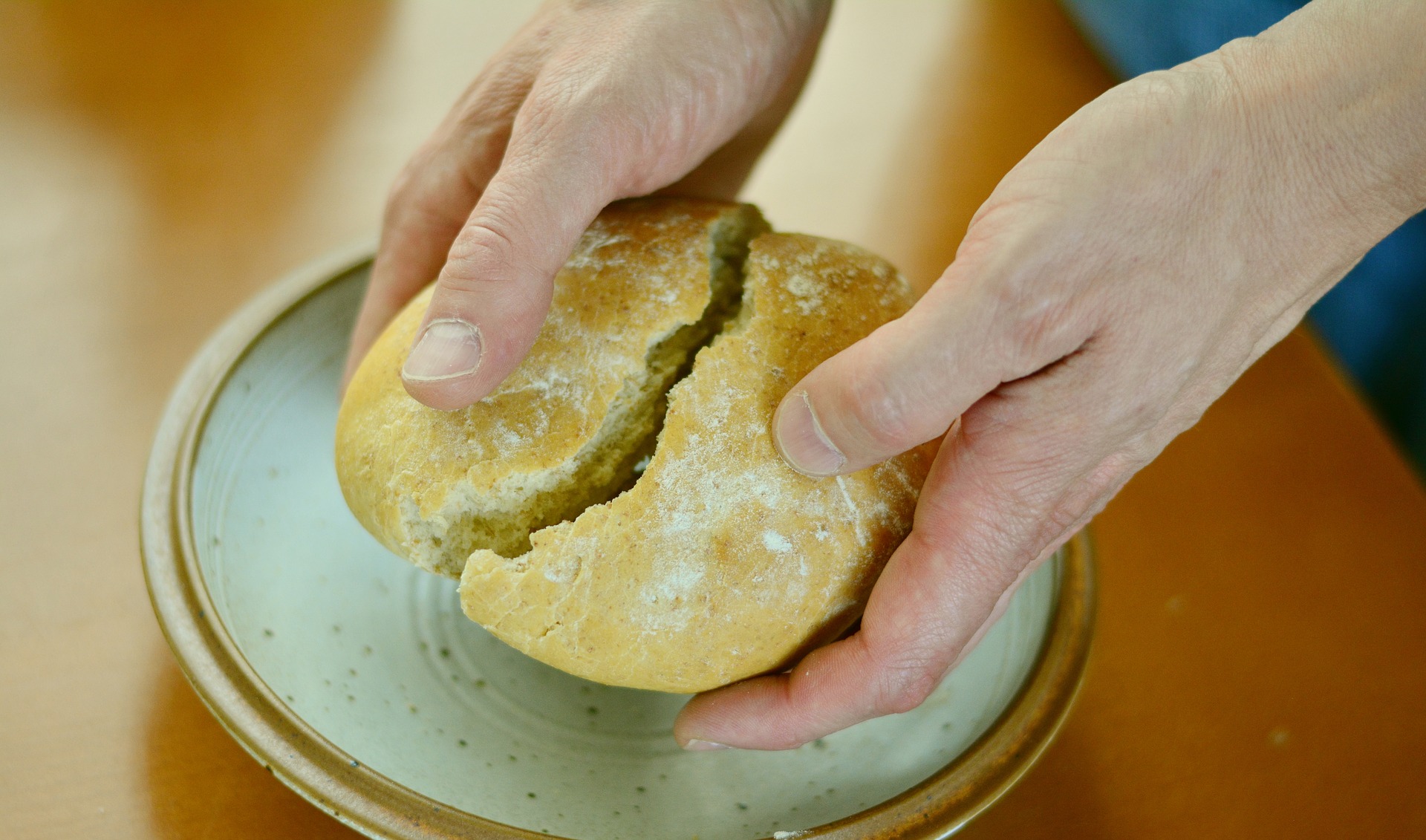I love communion.
I love the sanctifying aspect of it, the connection to Christ crucified through the observance of the Last Supper. I love the introspection we are called to engage in, which leads to confession, repentance, and grace.
Communion has always felt deeply spiritual to me, which is probably why I cringed the first time someone handed me one of those pre-packaged jobs–you know what I’m talking about, the little plastic cup of grape juice with the tiny wafer sealed inside the lid. I prefer a loaf of bread, a real cup.
My husband and I took communion at our wedding, as did our guests, while my niece played “In Christ Alone” on the guitar. It was one of my favorite moments of our wedding day, in part because almost everyone in attendance took communion with us. It was a collective time of connection with God.
The word “communion” isn’t actually used in Scripture, but it comes from the Latin word communis, which means “common.” It makes sense to me that over time, the Lord’s Supper began to be called “communion,” because it was common to all. Everyone took part.
What I’m going to say next is going to seem odd in light of what you’ve just read: I haven’t taken communion in almost three years. My church only serves communion once or twice a year, usually on a holiday, and we’re always out of town. As I shared this with various friends, family members, and colleagues over time, I began to understand that a good chunk of the modern church has veered away from a weekly communion service. I’m frustrated by this–I don’t understand why something like communion is apparently so unimportant. I want more connection with God, more reminders of who he is and who I am in him, not less.
I felt myself beginning to question this, beginning to ponder the importance of sacraments in helping shape a person’s spiritual life. Then, at the prompting of several books and a podcast or two, I picked up The Shaping of a Life: A Spiritual Landscape by Phyllis Tickle, a poignant and spiritually rich memoir about the author’s movement toward and exploration of a spiritual life shaped by liturgy and sacrament. It was a timely read.
What are liturgy and sacrament, you ask, and why might they matter? Readers who come from liturgical faiths, bear with me here.
To continue reading, join me over at The Glorious Table.

